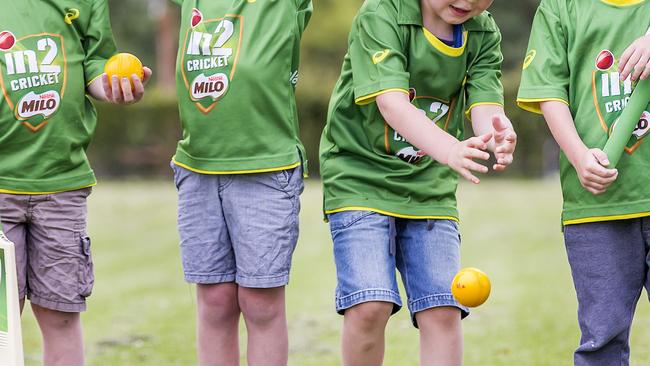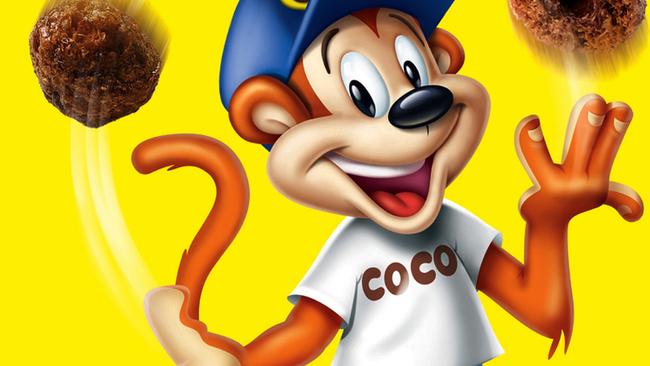Health experts call for end to junk food sports sponsorships by brands like Milo, McDonald’s and Subway
MILO cricket, McDonald’s swimming and Subway Little Athletics are among junior sports sponsorships targeted by health experts concerned about junk food being advertised to children.
VIC News
Don't miss out on the headlines from VIC News. Followed categories will be added to My News.
MILO cricket, McDonald’s swimming and Subway Little Athletics are in the sights of health groups calling for an end to loopholes that allow unhealthy food to be promoted to children.
The end of junk food sponsorship of junior sports is one of several measures being called for by the Obesity Policy Coalition in its new report slamming the industry’s self-regulation process.
PUSH TO BAN CARTOON CHARACTERS FROM HIGH-SUGAR CHILDREN’S FOOD
JUNK FOOD TV BAN TO SAVE KIDS FROM OBESITY: DEAKIN UNIVERSITY RESEARCHERS
While national advertising codes introduced in 2011 dictate unhealthy foods could not be directly marketed to children, the standards do not cover sports sponsorships, packaging or in-store promotions.
Companies can also decide for themselves which products they consider unhealthy — meaning they are free to pitch high-sugar cereals, ice creams and biscuits as long as they categorise them as “healthier”.

In other cases, food companies have successfully argued childlike cartoons used in their campaigns are not meant to appeal to children, but rather to a sense of nostalgia for adults.
Obesity Policy Coalition executive manager Jane Martin said just as the waistlines of Australian children continued to grow, so too did the loopholes being exploited by food companies.
“Self-regulation has been in place for almost 10 years now and obviously they are failing to protect kids when we need controls on marketing more than ever,” she said.
“We would like to see regulation — they are clearly not working and it is time government stepped in and supported families and communities to raise healthy kids.”
As the Senate examines Australia’s obesity epidemic, the OPC’s Overbranded, Underprotected report labels existing “sham rules” as a major contributor that must be abandoned.
With 27 per cent of Australian children above a healthy weight, the report found children were directly exposed to junk food through sports sponsorships such as Milo Cricket, McDonald’s swimming in Queensland, and even localised competitions.

In some cases, companies get around sponsorship regulations by using their brand name, rather than specific menu items, on materials to sidestep direct links with unhealthy foods.
“Products that a lot of people would regard as junk food or unhealthy foods — like Froot Loops, Coco Pops, Paddle Pops, chocolate-coated Tiny Teddies — are all defined as healthier and can be marketed to children,” Ms Martin said. “The companies make up their definitions and clearly they are out of step with Australian dietary guidelines.”
OBESITY FIGHT: PLAN FOR HEIGHT AND WEIGHT CHECKS OF ALL CHILDREN IN SCHOOLS
But Australian Food and Grocery Council deputy chief executive officer Dr Geoffrey Annison said outlawing food sponsorship could see many children denied access to sport.
He said the advertising codes virtually removed the advertising of foods high in energy, fats, salt and sugars during children’s TV programs, and were overseen by an independent adjudicator.
“Heavy-handed regulation could see bans of 15-second chocolate bars advertisements during hour-long cooking shows which show double choc brownies being baked,” Dr Annison said.


